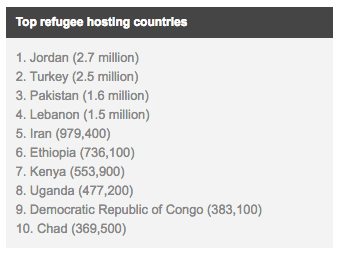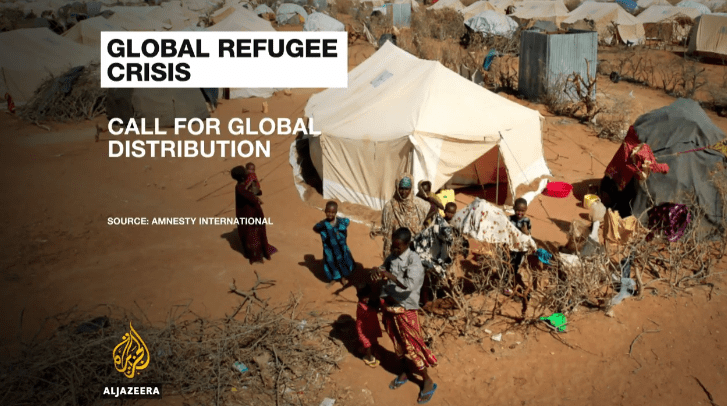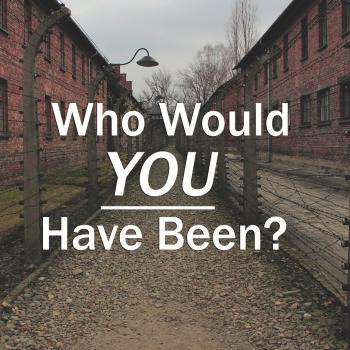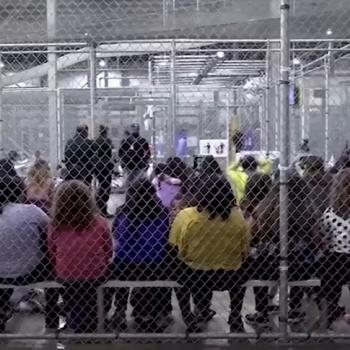As we know, the world is facing a refugee crisis.
We see it on the news daily, to the point where many of us in the West are likely desensitized to the scenes of refugee camps, capsized boats, and bodies of children washing up on the shores of neighboring countries.
Globally, there are countless millions of refugees– over 6 million of them are refugees fleeing the war in Syria alone. U.S policy and intervention in the region accomplished what many critics predicted from the beginning: we destabilized the entire area, created inner conflicts within regions, and left a gaping hole that was filled by extremists who continue to inflict chaos and destruction.
So, what to do with the all the refugees we helped create?
When President Obama indicated the United States would take in 10,000 of them, a good chunk of the country flipped their lid. Even some “Christian” leaders such as Franklin Graham have advocated that the United States not take in any of the refugees at all– a position that now represents that of the American right-wing.
Instead of welcoming in the stranger and providing for their needs (you know, Jesus stuff), the retort has been the same over and over again whether by right-wing talking heads, or random commenters on the Internet:
The Islamic countries need to do their fair share, they say.
I’m sure you’ve heard it too. People may phrase it differently, but the words are all the same: they should be helping their own people.
There is an unchallenged, underlying assumption in this position that we need to dispel– an assumption that we are the hospitable ones, that we are the ones who are the most generous, and that we are the ones doing all the work.
The reality is, none of that is true.
As Amnesty International has stated, rich nations like the United States “host the fewest and do the least” when it comes to helping refugees. Sure, we’ve taken in 10,000, but that’s a token amount in the big picture, and conservative Christians resisted that every step of the way.
So, if it’s not the United States or even Europe who is doing the most to help refugees, who is welcoming the most and doing the most?
Predominantly Muslim countries, that’s who.
As reported by Aljazeera, there are just 10 countries who host a majority of the world’s refugees, and the top five on that list are countries which are a majority Muslim:
On top of that list is Jordan, a country I just returned from a few days ago. This was my second invited trip to Jordan, and one of the biggest take-aways I came home with was a deeper appreciation for the generosity and radical hospitality that is so unique to the Muslim world. The gentle kindness I experience when among Muslims is second to none– it’s one of the few places in the world where you can be walking down the street one minute, and sitting as the guest of honor in a stranger’s house the next. Islamic hospitality is truly extraordinary on the global scene.
As we see from the statistics on who is doing the most to help refugees, it’s clear that Islamic hospitality isn’t just something that one finds in the small, day-t0-day experiences when among Muslims; their hospitality is so great that it is reflected in the fact that they are global leaders in setting the example of caring for strangers.
As people who claim to want to follow Jesus, we have a lot to learn from the Christ-like example of our Muslim brothers and sisters in the Middle East who have a long tradition of welcoming in the stranger.
The beautiful, selfless, and generous hospitality of Muslim nations is an example we should all aspire to, if we truly want to make Christians Christ-like again.
So, the next time you hear someone say, “Oh yeah? Well, I’d love to see the Muslim countries help out!” just remind them that Muslim countries are actually the ones who best care for the hungry, the naked, and the homeless, and that we could learn from their example.
 Dr. Benjamin L. Corey is a public theologian and cultural anthropologist who is a two-time graduate of Gordon-Conwell Theological Seminary with graduate degrees in the fields of Theology and International Culture, and holds a doctorate in Intercultural Studies from Fuller Theological Seminary. He is also the author of the new book, Unafraid: Moving Beyond Fear-Based Faith, which is available wherever good books are sold. www.Unafraid-book.com.
Dr. Benjamin L. Corey is a public theologian and cultural anthropologist who is a two-time graduate of Gordon-Conwell Theological Seminary with graduate degrees in the fields of Theology and International Culture, and holds a doctorate in Intercultural Studies from Fuller Theological Seminary. He is also the author of the new book, Unafraid: Moving Beyond Fear-Based Faith, which is available wherever good books are sold. www.Unafraid-book.com.

















